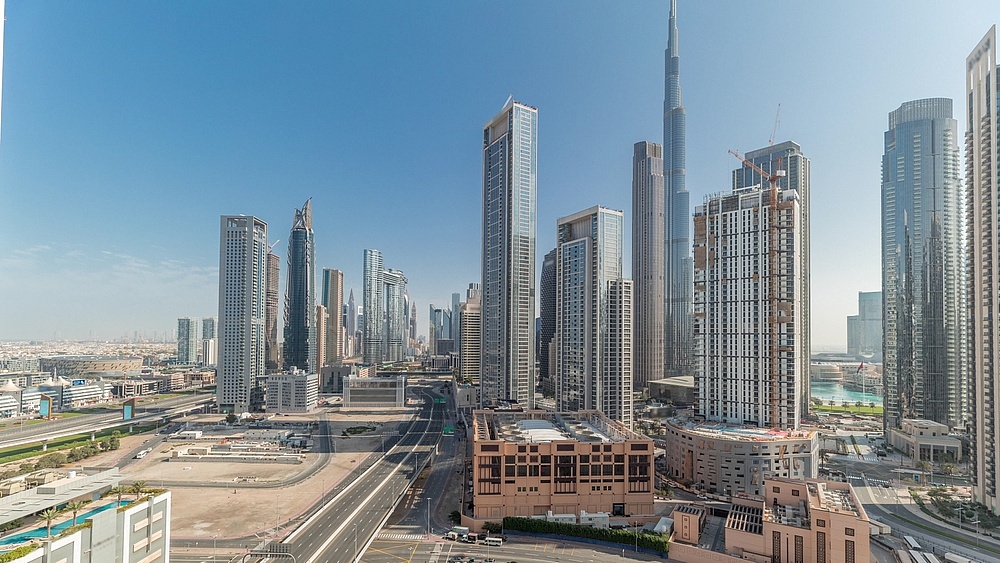
In the previous years, the Dubai real estate market has grown very trendy in acquiring local and foreign investors. One of the major problems buyers face, especially those investing into new property in Dubai, is the delay in property handover. Thus, understanding the insights learned from the delay could help a future investor in getting around the market in a more efficient manner.
Understanding about Delays in Property Handover
It refers to a property handover delay when the developer does not deliver the properties ready at the agreed-upon date. There are many reasons that can put a certain property under handover delays like construction delays, regulatory issues, or even some financial hurdle posed on the developer. Such delays, however, cause inconvenience to many buyers who have invested almost all their savings into an Off Plan Dubai investment in the properties of Dubai, expecting timely completion and handing over of keys.
The Common Causes of Delays
Construction Delays: There are a lot of reasons why construction delay happened. Among them could include shortage of labor, supply chain issues and unforeseen site conditions. Therefore, it must lead developers to have neglected estimating the time required for project completion.
- Regulatory: The property development-related regulations of DLD and RERA are very strict standards. Any violation of these could cause delays in project completion.
- Financial Indiscretion: Financial restraints faced by developers can hinder timely execution of projects due to several factors like misallocation of funds or inadequacy of capital required to complete the construction.
- Documentation Issues: Even incomplete documentation could lead to delay. Such documents could include approvals from appropriate authorities that are necessary for timely handing of a project.
Lessons Learned from the Delays
1. The Need for a Due Diligence Study:
Due diligence study must have been done against the developer before committing to Buy Property in Dubai. Researching the developer's past record, some of the previous projects done, and their financial condition should further assist buyers in judging credibility of the developer to help them choose that which has a proven record of delivery on time and within budget?
2. Understand Your Contract
Before signing the Sales and Purchase Agreement (SPA), it is of utmost importance that a prospective investor applies due diligence in examining the SPA closely. The SPA, as it is expected, should elaborate the expected completion date and penalties for delay in completion and obligations of developer. Awareness of such terms enables the buyer to assess their rights and options in the event of a delay.
3. Engage in Consistent Communication with Your Developer
Connection of an open line with the builder should be very important. Buyers should be given continuous updates on-during and after-construction whether it is on or off schedule or whether issues might arise soon. In this way, the existing concern can be addressed before it has grown much bigger.
4. Visit from time To Time the Work Site
Considering periodic visits by investors to the construction site for the evaluation of progress. This approach should help buyers to determine whether the project is on its track and whether it satisfies much of the quality standards as outlined in the SPA. This will, also, build a better relationship between developers and buyers during visits.
5. Take Legal Action:
In these cases, buyers have to take legal recourse if delays happen over the grace period as mentioned in the contract. Consultation with a property lawyer, would guarantee a direction on the appropriate course of action, like filing for compensation or cancellation of the arrangement. Such knowledge is thus vital for the investors as it sets the framework of property laws applicable in Dubai to safeguard the investment.
6. Take the Right Kind of Payment Plan
When considering buying off plan property in Dubai, the payment plans from the developer should also be verified by prospective buyers. Some developers have flexible payment options linked with construction milestones. Understanding how payments are structured will also help buyers manage their cash flow well.
5 Strategies to Mitigate Risks
1. Behavior and Early Investors
Opting for properties in existing developments with a history of good record, the risk in delays can be reduced. Buyers need to earmark such projects, which have received all the necessary approvals, and have good reputed developers behind them.
2. Utilize Escrow Accounts
Payments should be made into an escrow account opened and registered by the DLD; this is a safeguard measure because funds are released to the developer only after achieving certain construction milestones.
3. Keep Up with what is happening in the Market
Watching the trends and regulatory shifts in the market will equip the buyer with adequate information. Thus, understanding the broader context within which the Dubai property market operates may also convey some insights into the potential risks and opportunities.
4. Build Support Network
Interacting with other investors and real estate professionals can provide insights and also support. Networking in Dubai real estate keeps buyers sharing their experiences in terms of problems encounters.
Conclusion
The lessons from the property handover delays in Dubai emphasize the need for due diligence, good communication, and legal awareness on the part of the investors. Awareness of the different causes of delays and the strategies to mitigate them will help buyers avoid the complexity of Dubai's real estate market. Such proactiveness and awareness, as far as purchasing a new property in Dubai or off-plan investment in Dubai goes, can bring about a more fruitful and rewarding investment experience.




